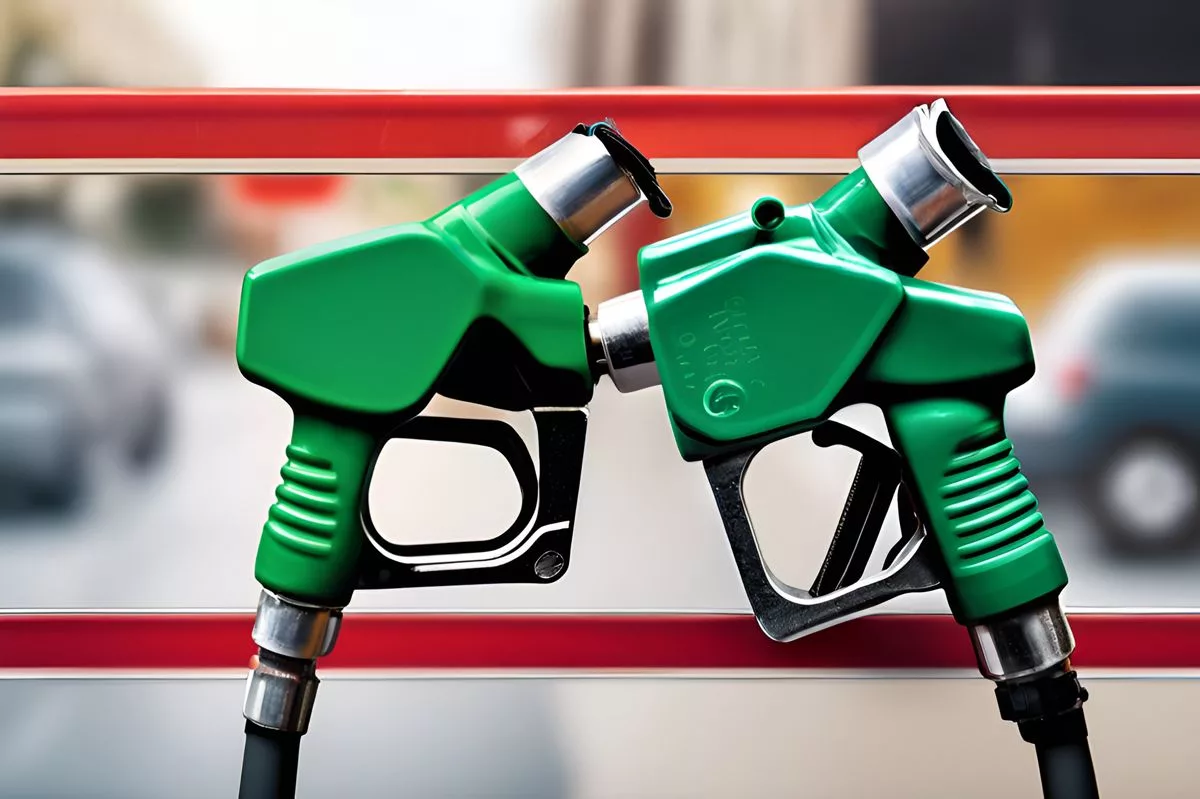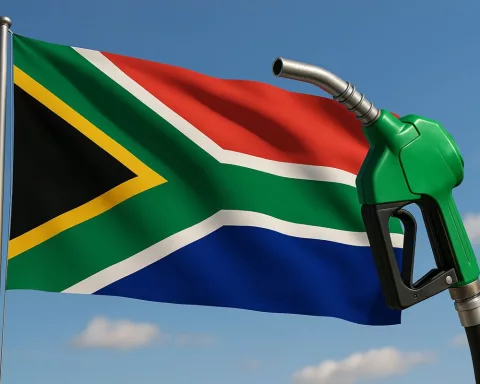South Africa is expecting another reduction in petrol prices in July, with a predicted drop of over R1 per litre for petrol and a decline of between 48 and 55 cents per litre for diesel. The decrease is due to an anticipated decline in economic activity in developed markets, the cost of oil falling to $82 per barrel, and signs of minor weakening in the rand due to political instability. However, ongoing conflicts in the Middle East and an increase in driving activity during the summer season may cause fuel prices to bounce back.
Upcoming Reduction in Petrol Prices in South Africa: What factors are influencing the reduction?
The predicted decrease in fuel prices for July is due to an anticipated decline in economic activity in developed markets. Additionally, the cost of oil fell to $82 per barrel in June, and the rand has shown signs of minor weakening due to political instability. However, ongoing conflicts in the Middle East and an increase in driving activity during the summer season may cause fuel prices to bounce back.
Amidst the unpredictable waves of the global economic landscape, South Africa is bracing itself for another decrease in petrol prices this coming July. The expected drop extends over R1 per litre for petrol and a decline of between 48 and 55 cents per litre for diesel is likely. The Central Energy Fund (CEF), an entity responsible for tracking fluctuations in oil prices and the rand-dollar exchange rate to forecast future fuel prices, provides these projections.
June served as a breath of fresh air for motorists as all fuel grades saw a noticeable drop in price. The cost of petrol plummeted by R1.24 per litre, while diesel experienced a cut between R1.09 and R1.19 per litre. The substantial decrease in these prices can be mainly credited to the strong performance of the rand, which was supported by the financial markets’ positive reaction to a union formed between the ANC and the DA.
Further strengthening the rand’s position was a burst of economic data from China, the world’s leading consumer of commodities. China’s economic direction has a significant domino effect on the prices of raw materials, any upward trajectory directly benefiting the rand. As a chief exporter of commodities, South Africa benefits from an augmented foreign exchange income owing to increased global demand.
Factors Influencing Fuel Price Reduction
The predicted decrease in fuel prices for July is a shift from the circumstances leading to June’s cuts, given that the rand has shown signs of minor weakening due to political instability. The cost of oil, a key actor in this economic tale, fell to $82 per barrel in June because of an anticipated decline in economic activity in developed markets.
Following these developments, the CEF has forecasted the subsequent reductions in fuel prices for the upcoming month: a decrease of R1.18 per litre for Petrol 93, a decrease of R1.12 per litre for Petrol 95, a decrease of 55 cents per litre for Diesel 0.05% (wholesale), and a decrease of 49 cents per litre for Diesel 0.005% (wholesale).
However, this decreasing trend in prices may not be a lasting occurrence. With the onset of the summer season in the northern hemisphere, oil demand is predicted to bounce back due to an increase in driving activity. The market could face further turmoil due to ongoing conflicts in the Middle East and strategies employed by oil producers to uphold production cuts, thus artificially escalating the price of oil.
The Impact of Global Shifts on Fuel Prices
The International Energy Agency has noted a potential oversupply in this decade due to the fast-paced global shift away from fossil fuels. As expected, oil-producing nations, grouped within the OPEC+ organization, are not excited about this possibility. Historically, they’ve utilized strategies to artificially inflate prices when a significant drop seemed on the horizon.
This week, Russia, a vital player in this economic game of chess, announced it would be reducing production by an additional 400,000 barrels, adding to the already promised reduction of 500,000 barrels. This decision serves as a testament to the intricate dynamics of the global economy, illuminating the balance of supply and demand. It also emphasizes the profound influence of political alliances and conflicts on the world’s fuel prices.
In conclusion, South Africa is preparing for a significant reduction in petrol prices in July. The factors leading to this expected decrease are complex, intertwined with global economic changes, political alliances, and the intricate balance of supply and demand. With a potential global shift away from fossil fuels, the future of petrol prices remains uncertain. However, for now, motorists in South Africa can look forward to some economic relief.
1. When is the expected reduction in petrol prices in South Africa?
The expected reduction in petrol prices in South Africa is in July.
2. How much of a decrease in petrol and diesel prices is predicted?
The predicted drop for petrol is over R1 per litre, and for diesel, it is between 48 and 55 cents per litre.
3. What factors are influencing the reduction?
The predicted decrease in fuel prices for July is due to an anticipated decline in economic activity in developed markets, the cost of oil falling to $82 per barrel, and signs of minor weakening in the rand due to political instability. However, ongoing conflicts in the Middle East and an increase in driving activity during the summer season may cause fuel prices to bounce back.
4. Why did fuel prices drop in June?
Fuel prices dropped in June due to the strong performance of the rand, which was supported by the financial markets’ positive reaction to a union formed between the ANC and the DA.
5. Could the decreasing trend in fuel prices be a lasting occurrence?
The decreasing trend in fuel prices may not be a lasting occurrence. With the onset of the summer season in the northern hemisphere, oil demand is predicted to bounce back due to an increase in driving activity. Also, ongoing conflicts in the Middle East and strategies employed by oil producers to uphold production cuts may artificially inflate the price of oil.
6. What impact do global shifts have on fuel prices?
Global shifts, such as the fast-paced global shift away from fossil fuels, could potentially lead to an oversupply in the market, and oil producers may utilize strategies to artificially inflate prices when a significant drop seems on the horizon. Political alliances and conflicts also have a profound influence on the world’s fuel prices.












